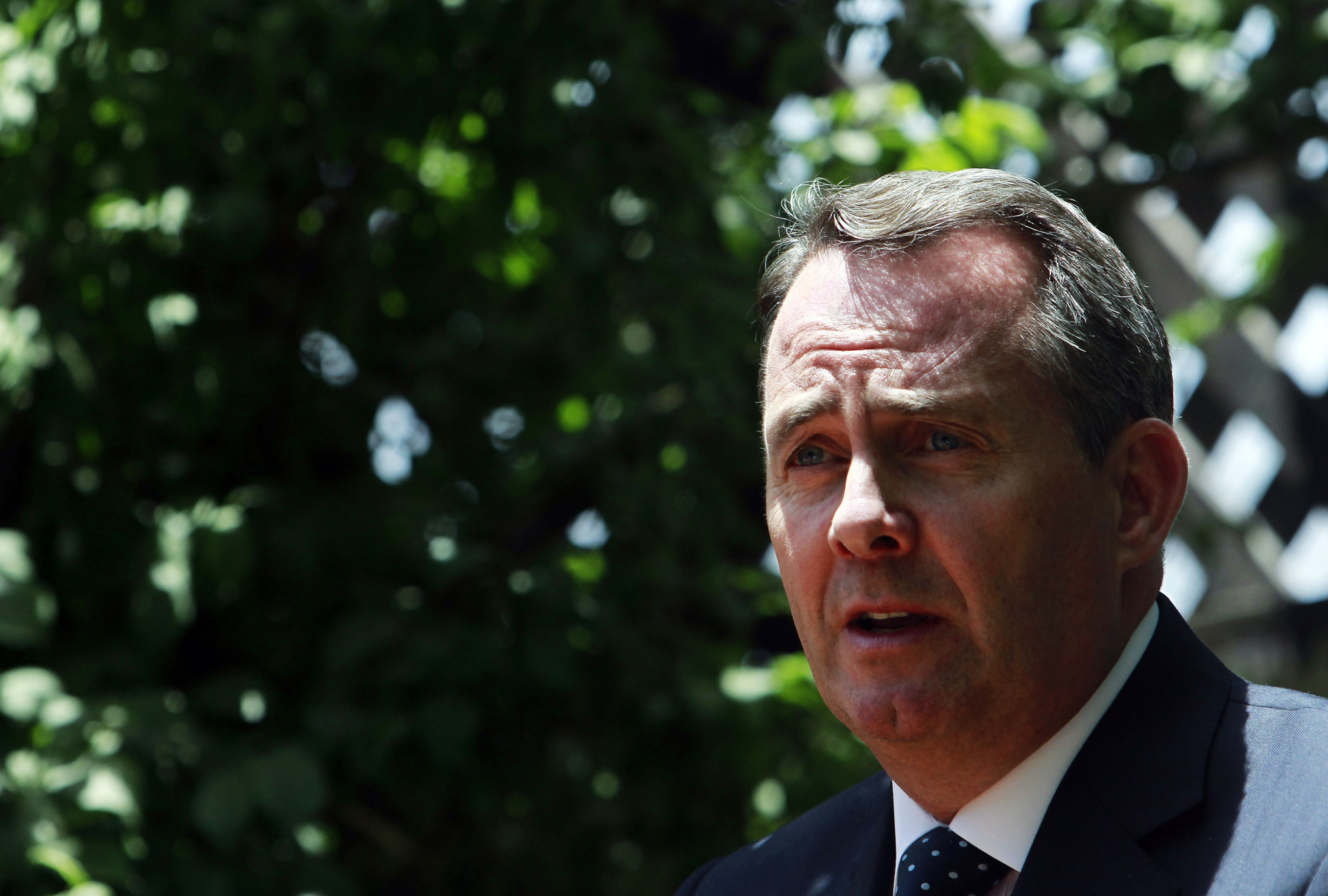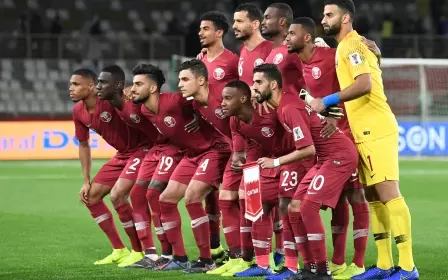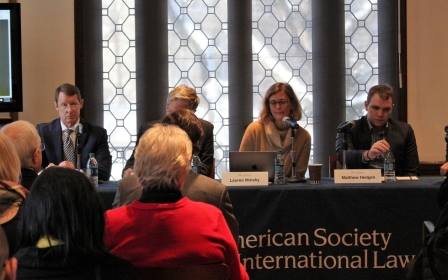UK minister seeks post-Brexit trade deal with GCC despite rights violations

Britain's international trade secretary is visiting the UAE to discuss a possible trade pact with the Gulf Cooperation Council (GCC) after the UK leaves the European Union, despite criticism of some members' rights record and recent high-profile controversies between London and Abu Dhabi.
With the UK set to leave the EU next month despite no deal with the bloc yet agreed, several commentators have accused the country of cosying up to authoritarian regimes in the Middle East in a desperate bid to cushion the expected blow of a possible no-deal exit.
New MEE newsletter: Jerusalem Dispatch
Sign up to get the latest insights and analysis on Israel-Palestine, alongside Turkey Unpacked and other MEE newsletters
Liam Fox said on Sunday that the UK was "looking forward" to a free-trade agreement with the GCC during the start of a visit to the United Arab Emirates for the World Government Summit in Dubai, according to Emirati state news agency WAM.
The minister also claimed the pope's recent visit to the UAE had "sent a very strong message about tolerance".
The GCC comprises the UAE, Saudi Arabia, Oman, Kuwait, Bahrain and Qatar.
The UK has previously been accused of prioritising business deals over human rights in its dealings with several GCC countries, including the UAE.
The UK's dealings with Saudi Arabia have come under close scrutiny as a result of Britain's arms deals with Riyadh, which is engaged in a war with Houthi rebels in Yemen, and the murder of Saudi journalist Jamal Khashoggi last October.
Human Rights Watch has said the Saudi government "systematically discriminates" against minority groups, women and girls, as well as carrying out dozens of executions every year.
Bahrain and Kuwait have also been accused of human rights violations against their citizens.
'Sympathy to Qatar'
Last week, it was reported that a British man had been arrested in the UAE for wearing a Qatar football shirt to an Asian Cup match between Qatar and Iraq on 22 January.
A friend of Ali Issa Ahmad, a 26-year-old British-Sudanese dual national, who had spoken to him in detention, told the UK's Guardian newspaper that Ahmad had told him he was unaware that wearing the Qatar shirt was a punishable offence in the UAE, which was hosting the football tournament.
The Emirati embassy denied that Ahmad had been arrested for wearing the football shirt and instead said he had been charged after allegedly falsely claiming that he had been "harassed and beaten up" by Emirati football fans.
The UAE's prohibition on "showing sympathy to Qatar" was established in 2017, after the country cut off diplomatic relations with Doha in conjunction with other GCC members Saudi Arabia, Egypt and Bahrain.
The treatment of UK nationals detained in the UAE became a diplomatic issue last year when a British academic, Matthew Hedges, was arrested and accused of spying.
Hedges was sentenced to life imprisonment but subsequently pardoned and released in November following British diplomatic pressure.
He said he had been forced to sign a false confession and mistreated and threatened with torture during six months in detention.
An Emirati official said after his release that Hedges was "100 percent a secret service operative".
In 2017, following a visit by Fox to Kuwait to discuss trade, Tim Farron, the former leader of the UK's Liberal Democrat party, told Britain's Independent newspaper: "Another day, another desperate visit by Liam Fox to secure a trade deal with a country that has a questionable record on human rights
"This follows his attempts to strike trade deals with Saudi Arabia and Oman among others.
"If only he were so keen to ensure Britain was able to continue trading in the world's largest market, the single market. Then he wouldn't need to put trade above human rights."
Years to negotiate
Sultan bin Saeed al-Mansouri, the UAE economy minister, confirmed on Monday that the UK had approached the UAE and other Gulf countries on a possible trade pact after Britain leaves the European Union.
Such agreements can take years to negotiate, Mansouri said on a panel at the World Government Summit.
Fox was due to spend several days in the UAE and meet with the chairman and chief executive of Emirates Airlines and the chairman and CEO of major UK investor DP World, among others.
In a press release for the trip, Fox said: "The UAE is a major trading partner for the UK and, sitting at 4.4bn pounds [$5.7bn], represents one of the largest trade surpluses in any of our trade relationships
"The World Government Summit is a unique chance to build on this deep economic partnership which will be of growing importance as we prepare to leave the European Union."
There was no mention of the trip on the Department for International Trade's website.
Middle East Eye delivers independent and unrivalled coverage and analysis of the Middle East, North Africa and beyond. To learn more about republishing this content and the associated fees, please fill out this form. More about MEE can be found here.






